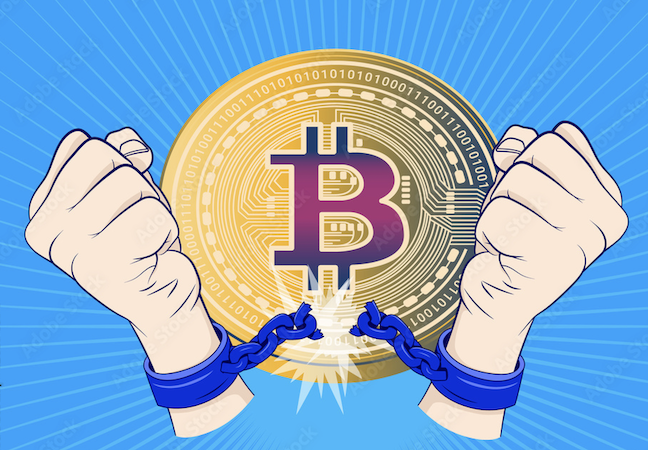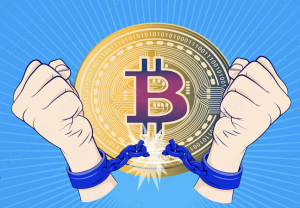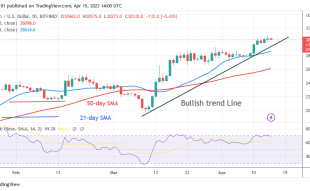Join Our Telegram channel to stay up to date on breaking news coverage
Tuesday’s complete hearing of the U.S. House Committee on Financial Services will feature SEC Chair Gary Gensler as the featured witness on the subject of “Oversight of the Securities and Exchange Commission.”
The Subcommittee on Digital Assets, Financial Technology, and Inclusion will discuss a stablecoin law draft on Wednesday.
After being accused by many for not doing anything to increase scrutiny of the sector, this bill comes as one the first major piece of crypto legislation to appear in 2023. It follows two major disasters that happened in the last 12 months, both involving stablecoins: the collapse of the token TerraUSD (UST), which was backed by a coin called LUNA, and the second-largest one, USD coin (USDC), that de-pegged from the US dollar, albeit only temporarily.
Gary Gensler, enemy of crypto
Gary Gensler has long been recognized as one of the main enemies of the U.S. crypto community. In the recent past, he used his own authority to take action against various crypto business, and as such he made the SEC much more strict than the other regulatory organization, the Securities and Exchange Commission (SEC).
Gensler sees the majority of cryptocurrency goods as securities. He has accused several significant cryptocurrency companies, including Gemini, Genesis, and Kraken, of neglecting to register financial products with the SEC since January. These three businesses provided yield programs through which investors were receiving interest on their initial deposits. Despite the fact that the corporations gave the goods various names, Gensler contended that they were all comparable processes that should fall under his SEC’s jurisdiction.
SEC’s many attacks against crypto businesses have garnered the moniker “Operation ChokePoint 2.0“, and we have written about it in the past.
Gensler wants to see changes to the law. He stated that platforms that trade crypto asset securities, including “so-called ‘DeFi’ systems,” require changes to the federal Exchange Act Rule’s definition of “exchange,” despite the fact that “many crypto trading platforms already fall under the current definition of an exchange.”
This shows that Gensler is conscious of the major threat that decentralized (DeFi) exchanges pose to the existing order, and believes that one of the only weapon the government has against those is to regulate them ever more strictly. In doing so, however, he forgets that history shows that P2P network are notoriously difficult to control. In the past, when music sharing started on the Internet, the government was successful in persecuting centralized sharing platforms such as Napster. However, despite their best efforts, P2P sharing networks such as Bittorrent continue to exist, showing the difficulty of shutting down such systems.
It is also to be noted that bitcoin was designed as a libertarian tool to escape government financial control. It is something that is not generally appreciated. We have written about this subject before when we mentioned Edward Snowden’s warning about the direction crypto is headed in.
Dissenting voices within the SEC
It is interesting that some bright minds within the SEC can see the danger in this “regulate to destroy approach” and Gensler has once again come in for criticism from within his own organization. SEC Commissioner Hester Peirce filed a forceful dissent against Gensler’s most recent policy decision, which expands the statutory definition of a securities exchange to include cryptocurrency and digital asset exchanges, on Friday.
Pierce seems to understand that there is another way to go about it, that could allow the U.S. to profit from a movement that may be fundamentally unstoppable.
The title of Pierce’s response was “Rendering Innovation Kaput.”
Pierce wrote,
Rather than embracing the promise of new technology as we have done in the past, here we propose to embrace stagnation, force centralization, urge expatriation, and welcome extinction of new technology.
Pierce went on to say the SEC’s release “undermines fundamental First Amendment protections.”
However, the Financial Services Committee’s agenda includes more subjects than just the disagreement over the definition of an exchange.
The committee majority staff stated that the hearing would look at “regulatory developments, rulemakings, and activities that the SEC has undertaken in the time since the last hearing on October 5, 2021,” including the definitional change that “potentially [expands] the SEC’s authority over digital asset trading platforms.”
The SEC’s announcement from last March, which some lawmakers claimed increased the possibility of losses, calling on digital asset custodians to alter how they record liabilities and assets, is also on the agenda. The SEC’s February proposal, which called for registered financial advisors to list Bitcoin holdings among other assets managed by “qualified custodians,” will also be reviewed by the committee.
At the time, Peirce stated, “The Commission is once again proposing to dictate contract provisions involving entities the Commission does not regulate, which is starting to become something of a habit.” She added that although the Commission lacks the authority to directly regulate custodians, there should be a proposal to do so in an indirect manner.
“Understanding Stablecoins’ Role in Payments and the Need for Legislation”
The next day, the Congress will discuss “Understanding Stablecoins’ Role in Payments and the Need for Legislation.” The agenda for the hearing on Wednesday includes reading through 72 pages of proposed law “to provide requirements for payment stablecoin issuers, research on a digital dollar, and for other purposes.”
Comprehensive definitions are included in the draft legislation, including with rules for stablecoin issuance at the federal and state levels and standards for interoperability, reporting, and enforcement. The Act also mandates a two-year prohibition on the creation of additional stablecoins while the U.S. Treasury conducts its assessment.
Support from Circle
The measure was described as “the first comprehensive proposed law for Payment stablecoins” and “a product of bi-partisan efforts” by Jeremy Allaire, co-founder and CEO of Circle.
Allaire wrote on Twitter that
It’s an extraordinary moment for the future of the dollar in the world, and the future of currency on the internet. It’s time for the US to take the lead, and that means having clear regulation and encouraging innovation and entrepreneurship within the bounds of US prudential law.
Draft US Digital Dollar / Payment Stablecoin Bill Enters Congress
1/ A product of bi-partisan efforts, the first comprehensive proposed law for Payment Stablecoins has arrived in Congress. Some thoughts below:
https://t.co/SD0x2oQMmk— Jeremy Allaire (@jerallaire) April 15, 2023
Circle is known to have a reputation for trying to do everything within its power to seek the approval of regulators. In the past, they have frozen anonymous holders’ USDC funds at the request of regulators. Despite their best efforts, they remain a heavily centralized entity that is susceptible to all the dangers of that, as the recent USDC de-pegging event showed.
Austin Campbell, an adjunct assistant professor at Columbia Business School, Dante Disparte, the chief strategy officer and head of global policy at Circle, Jake Chervinsky, the chief policy officer of the Blockchain Association, and Adrienne A. Harris, the superintendent of the New York State Department of Financial Services, are all anticipated to testify.
Allaire encouraged supporters to watch the hearing on Wednesday despite the fact that the suggested legislation still requires improvement. He declared,
While comprehensive, there are clearly open and challenging issues with the bill as proposed, and now is the time for our country and political leaders to really dig in and get this right. The future of the dollar is in jeopardy.
Freedom or regulation?
The difficult path to walk between safety and freedom needs to be recognized. At one end of the spectrum, you have complete lack of regulation, that brings freedom and all its benefits, but also the dangers of some actors taking advantage of the system. Safety becomes the responsibility of each participant.
At the other extreme, you can have a stifling framework of laws that try to regulate everything and, through this, stifle innovation and impose rigidity.
What exactly is the right balance between legislation and freedom? History shows that governments often tend to become abusive over time, to try to take more and more advantage of its citizens through excessive taxation and economic favoritism, which has historically led to the decline and collapse of once-flourishing civilizations. Given the sorry state of most of the world government’s finances at the moment, perhaps it is time to err on the side of freedom and jump into what bitcoin was truly designed for.
Related
- Coinbase and the SEC
- US SEC allegedly notified Paxos of an upcoming lawsuit tied to Binance USD (BUSD)
- The U.S. Crypto Crackdown May Restructure the Sector
- Operation Choke Point 2.0: US goes after crypto amid confusion and uncertainty
Join Our Telegram channel to stay up to date on breaking news coverage


